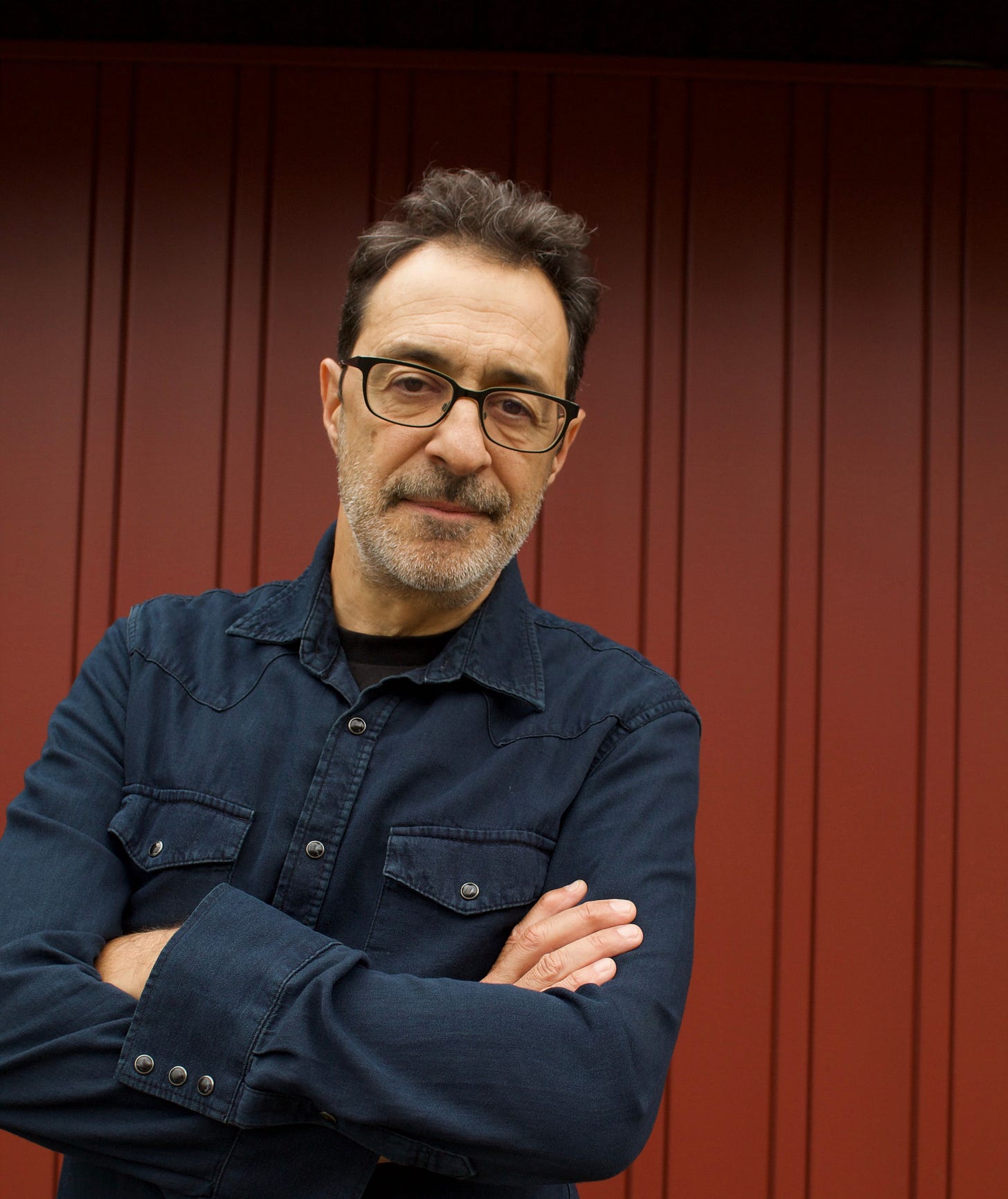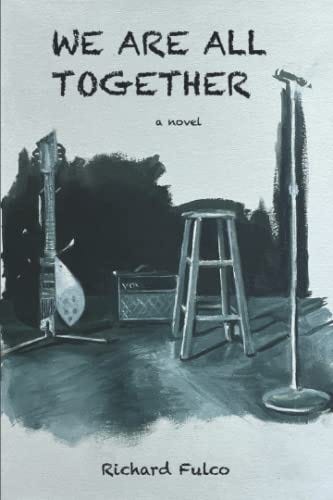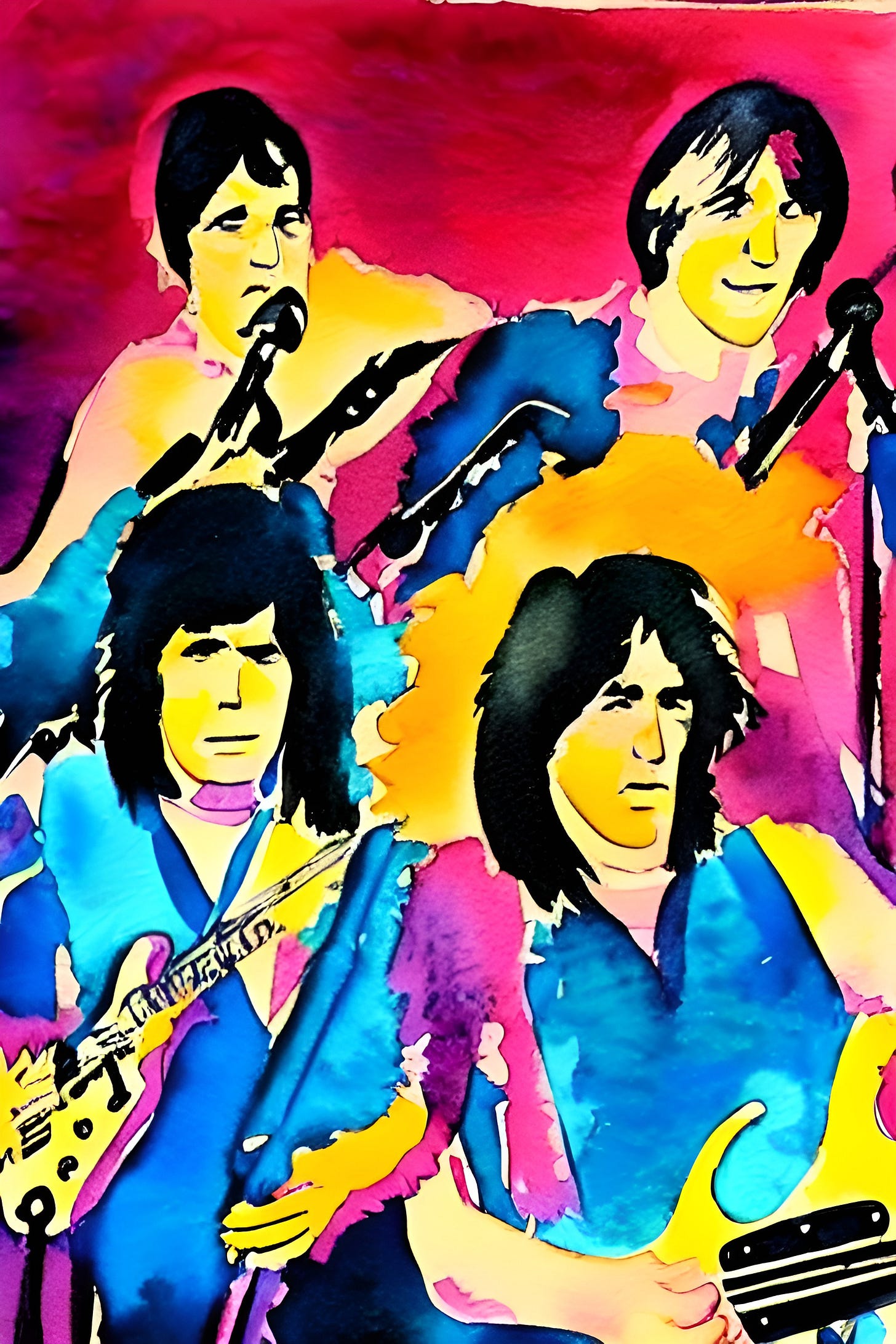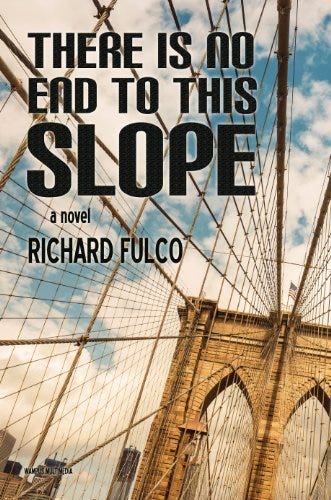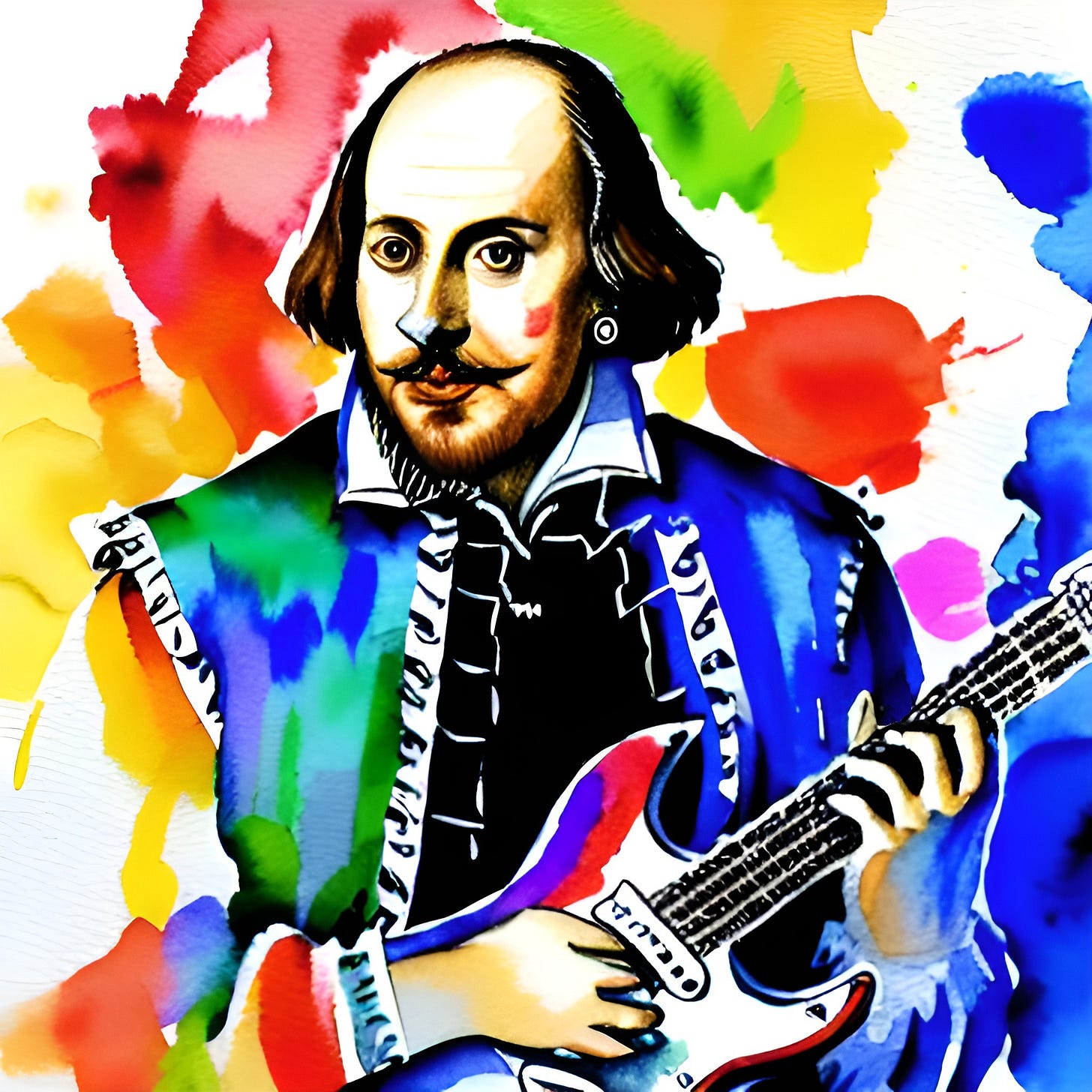Interview with Richard Fulco - 2023
Interview #21 (Rock and Roll Novel, Literary Fiction, Historical Fiction)
Richard Fulco received an MFA in playwriting from Brooklyn College where he was the recipient of a MacArthur Scholarship. His plays have either been presented or developed at The New York International Fringe Festival, The Playwrights’ Center, The Flea, Here Arts Center, Chicago Dramatists, and The Dramatists Guild. Richard’s one-act play Swedish Fish was published by Heuer Publishing and his stories, poetry, interviews, essays, and reviews have appeared in The Brooklyn Rail, Failbetter, Across the Margin, Fiction Writers Review, Gargoyle, The Daily Vault, and American Songwriter (among others). He teaches creative writing and English at an independent school in New Jersey and interviews writers for his “5 Questions” series at www.richardfulco.com. Richard’s debut novel, There Is No End to This Slope, was published by Wampus Multimedia in 2014. We Are All Together (Wampus Multimedia) is his second novel.
Randal Eldon Greene: Hello, Richard Fulco.
We Are All Together is a novel of the 60s. It actually took me a bit to realize that I was reading Historical Fiction, not just a story set in a truly revolutionary decade. You throw your main character and a fictional band with its charismatic front man into both the orbit of the famous and the turmoil of the times.
What attracted you to writing about this time period?
Richard Fulco: The late 1960s was a Renaissance for popular music. Rock. Soul. R&B. All three genres had reached their zenith. As a young musician in the 80s, I was naturally drawn to the music that came before me. When I started writing We Are All Together, my plan was to draw upon my personal experiences and create a rock and roll novel about a guitarist, Stephen Cane, who is so desperate to make it that he's willing to do whatever it takes. My intention was to write the literary equivalent of Cameron Crowe's film Almost Famous.
Like many people of my generation (Generation X), I've always been captivated by the mythology of the Monterey Pop Festival, The Summer of Love, peace, love, hippies and the counterculture, which is the mainstream narrative. However, as I researched The Summer of Love, I discovered another narrative, one that isn't as well documented– The Long, Hot Summer, where more than 150 riots took place across America. The major rebellions took place in Detroit and Newark. We Are All Together addresses a nation struggling with its mythological past.
In my novel, the young genius, Dylan John, his lead guitarist, Stephen Cane, and their psychedelic band Red Afternoon are loosely based on Syd Barrett, David Gilmour, and Pink Floyd whose debut record, The Piper at the Gates of Dawn, was released in August 1967. Shortly after its release, Syd Barrett - the group's founder, lead singer, guitarist, and primary songwriter - was fired from the band for either his mental illness or his excessive use of psychedelic drugs.
I had fun experimenting with the Syd Barrett myth. What if Dylan John (Syd Barrett) quits the band to become a civil rights activist, leaving his best friend Stephen Cane (David Gilmour) to lead the band he had recently joined?
I pose the questions: What is the artist's role in society? Does the artist owe the world anything? Does the ailing world need another rock star?
In the end, Stephen, Dylan, and I learn that equality is a myth, that equity is a falsehood, and that as white men we are truly limited in our understanding of what it means to live as a person of color in America.
Randal Eldon Greene: I noticed that in your book, Dylan is the only white character who seems to care deeply about civil rights for African Americans. All the other fictional white characters are either apathetic or outright racist. I'm curious if this was a conscious choice, perhaps stemming from the needs of the plot or the reality of your research into race relations during the Long, Hot Summer? And maybe it wasn't conscious?
In either case, by not sugar-coating white privilege with a plethora of white allies cheering on the rioters, you gave this reader an ever-increasing sense of helplessness which mirrored the trajectory of Stephen's journey as a musician so well that—despite them being seemingly two disparate elements in the novel—I couldn't help but read Stephen's musical career as a kind of allegory for the white American's stages of awareness about our country's racial inequality: unconsciousness, growing awareness, sorrowful anger, and impotence.
Richard Fulco: One thing I learned since the 2016 election is that as a middle-aged white guy my knowledge and understanding of other people's lives, particularly people of color, is limited. I'm ashamed to say that I hadn't really contemplated my own privilege until fairly recently.
I naively thought that with regard to race, things were improving in the United States. I figured that most people want justice and equality for all. But like Dylan John, I'm an idealist.
Like so many others, I've been experiencing the futility of this life. What's the point of being hopeful when there's so much hopelessness? What's the point of having a goal when so many goals are never achieved? What's the point of placing value on anything when most things don't have any value?
I'm sorry that I'm getting so existential with you, but like Stephen Cane, I think most people focus on themselves and don't think of others. We place so much emphasis on the Self that we don't consider being entangled with others. We are all in this together. Right?
Randal Eldon Greene: Stephen develops a bit of a passivity complex after trying to extricate himself from the shadow of John Dylan (née Arthur Devane) early in both their music careers when he quits their band, Ghost Spider. Stephen joins a band where he can shine. But this band, Frankie and The Good for Nothings, make nothing of themselves in the end.
While Stephen does make fitful strides toward a music career after the band falls apart, he's also afraid to take truly decisive moves after this; he's riding coattails and finding himself on drugs even when he doesn't really want to take them. The message here isn't a hippie-esque go-with-the-flow platitude. Nor is the message one of idolizing the spirit of American individualism. Neither style of confronting the obstacles and approaching the offers of the world lead him to what he truly wants. Am I wrong to think that maybe one of the core messages here isn't the how of navigating life, rather it's about finding the right why for navigating life and letting your why dictate the how?
Richard Fulco: Randal, your astute questions have caused me to think deeply about my work. Thank you for that. It has taken me a week to reflect and answer your provocative question: "Am I wrong to think that maybe one of the core messages here isn't the how of navigating life, rather it's about finding the right why for navigating life and letting your why dictate the how?" Here it goes . . .
I think you're spot on when you said, "The message isn't a hippie-esque go-with-the-flow platitude. Nor is the message one of idolizing the spirit of American individualism." Stephen Cane floats throughout his life. He floats into playing guitar with Frankie and the Good For Nothings. He floats to New York. He floats into a relationship with Emily. He floats into reuniting with Dylan John. He floats and coasts, though he makes conscious choices.
It's no secret that Stephen wants to be a famous rock star. The celebrity comes first, while the craft might be a distant second. He breaks up Ghost Spider because The Good For Nothings have management and a record contract. When The Good For Nothings dissolve, Stephen travels halfway across the country to reunite with Dylan whose band, Red Afternoon, is on the rise. He hooks up with Emily because she's friendly with the band. He makes all of these decisions because he wants fame, fortune, and everything that comes with it.
When Dylan quits Red Afternoon, Stephen becomes the group's leader, and then he begins to question his dreams and aspirations. Has he been living the life he has chosen or the one his father wanted for him?
Stephen knows how to become rich and famous: ride Dylan John's coattails. He needs to figure out why he wants to be a rock star.
Randal Eldon Greene: You have a lot of fun introducing musical groups into the book. Bands like The Beatles and The Velvet Underground are talked about or even make an appearance. Hilariously, I recall Stephen saying something to the effect that it seems to him that the members of The Velvet Underground do not know how to play their instruments. I get the feeling that his notions about music do not entirely reflect your own. Were these the bands and musicians you grew up listening to? How influential was music to you in the writing of this book?
Richard Fulco: I set out to write a rock and roll novel. I hope I accomplished my goal. When I started writing, I thought I was going to incorporate stories from my days as a lead singer in a band, but it didn't turn out that way. I think only one story from my personal life made it into the novel. Here it is...
Back in the 80s, my band, Catch 22, played a regular gig on Bay Street in Staten Island called Pete Piffins. It was a small club, so it was fairly easy to pack the house on a Friday and Saturday night. On more than one occasion, the owner, Pete, holding a decibel meter in both hands, barged his way into the crowd, knocking into people. We referred to the meter as "The Peter Meter."
Pete held "The Peter Meter" above his head in the middle of the room, and if we were playing too loud he'd give us the thumbs down. Both thumbs. We were always too loud, and Pete was always threatening to throw us off stage. We'd stroll over to our amplifiers and pretend to turn them down. Pete checked his meter. A smile came across his face, he'd go back behind the bar, and we had a real good laugh at his expense.
Here's a partial list of the albums I was spinning while writing We Are All Together:
Piper At the Gates of Dawn, Pink Floyd
Muswell Hillbillies, The Kinks
Pure Comedy, Father John Misty
Waiting on a Song, Dan Auerbach
Lotta Sea Lice, Courtney Barnett & Kurt Vile
American Beauty, Grateful Dead
Randal Eldon Greene: The art and music scene was (and still is) plagued by drug use and drug pushers. Stephen says, "I'm not sure that I can accurately describe what it feels like to stick a spike into my vein and push the plunger down with my calloused thumb, but I'll try my best." And he does describe it, and it's chilling. One way to read your novel could be as an indictment of the world of rock for romanticizing illicit drug use. But I think you've done more than that by showing us the frivolity of the entertainment industry on a multitude of levels. So many stories about musicians end with a message of music changing the world, but your characters are forced to change themselves against the current of music.
I would like to know if these honest but blunt themes arose organically as you wrote—being an inextricable part of rock and the time period—or was it more intentional, perhaps derived from your time singing for Catch 22?
Richard Fulco: I don't have any experience with drugs, but I've been around plenty of people who have struggled with addiction. For the novel, I researched heroin use and just imagined the experience of the initial euphoric rush and what it's like to be sedated and "on the nod" (as they say). John Lenza, the protagonist in my other novel, There Is No End to This Slope, is also an addict. Addicts are interesting to create. I sympathize with them, and I hope readers do as well. Both Stephen and John are trying to detach themselves from the emotional torment in their lives.
Years ago, I had a girlfriend who wanted to experiment with heroin. I was young and naive at the time, but I remember having a long, lucid conversation with her about the dangers of putting a needle into your arm. You might experiment with marijuana or acid or other hallucinogens, and maybe some people have the ability to use heroin recreationally, but I always felt that heroin is one drug you don't play around with. You'll eventually build up a tolerance and that's the beginning of the end. And that's the end of my PSA.
I don't think of my novel as an indictment of "romanticizing illicit drug use." People medicate when they're in pain. Stephen Cane is suffering. All of the characters in the novel are suffering. Stephen's father is an abusive and emotional tyrant. His alcoholism tears apart his family. His deeply unsatisfying life is the basis for his poor values and ethics. Stephen Cane Sr. urges Stephen Cane Jr. to take the money whenever it's possible. He advises his son to hitch his wagon to Dylan's star, but when there's a more promising opportunity with The Good For Nothings, he suggests that Stephen leave the group he's been building with Dylan and to pursue the gold with the band who has management and a record contract.
Inevitably, the father's transgressions are revisited in the son. The proclivity for self-abuse and self-sabotage are clearly evident in both of the Cane men.
Randal Eldon Greene: In the latter part of the novel, you introduce a group known as The Jolly Jokesters, led by a man who goes by the name Helios. The Jokesters are an obvious reference to Ken Kesey and his group the Merry Pranksters. But The Jokesters are the Pranksters from a mirror universe—that is to say an evil one. The historical Pranksters want to obliterate the nation with music and the 60s psychedelic weapon of expanding the collective mind of the masses against the establishment; the Jokesters want to start a war—a race war.
Richard Fulco: Things are not always as they seem.
Yes, it's a clichè, but as with most clichès there is a grain of truth to it. In We Are All Together, I quote Shakespeare's Twelfth Night on more than one occasion. Here's one memorable line that didn't make it into my novel, but guided my writing thematically: "And though that nature with a beauteous wall / Doth oft close in pollution."
On the surface, The Jolly Jokesters appear to be this carefree, group of bohemians – a "beauteous wall" – but lurking underneath is the dark underbelly of the human condition and the propensity for violence and cruelty. Pollution!
As a kid, I saw the film Helter Skelter and was totally freaked out by the portrayal of the Manson Family. Charles Manson was a deranged madman, but he didn't scare me nearly as much as the young, naive runaways and outcasts he had recruited and brainwashed. In fact, one of the girls, Linda Kasabian, who served as a lookout for the seven murders carried out by The Family, died this past January.
Kasabian served as a model for the minor character Kiki, who Stephen meets on the bus Furthermore. She's polishing a rifle as she speaks of the lynching that The Jolly Jokesters plan to carry out. The propensity for humankind to kill and commit atrocities frightens the hell out of me.
The Jolly Jokester chapters were some of the most challenging for me to write. It's the first time I have written a murder scene.
Randal Eldon Greene: It certainly does not surprise me to see The Bard make it into a rock novel, being so much of rock and roll is about performance and not just music. Plus there's always so much one can get out of Shakespeare and put to use thematically into one's own writing. Why did Twelfth Night in particular influence We Are All Together?
Richard Fulco: When Dylan John quits Red Afternoon, he is replaced by Stephen Cane, who eventually collapses under the enormous pressure of leading a popular rock band. During Stephen's incendiary interview with Jann Wenner at Rolling Stone, the writer insinuates that the musician is lucky and not as talented as his predecessor. Wenner quotes Malvolio from Twelfth Night, "Some are born great, some achieve greatness, and some have greatness thrust upon them," though Stephen – who is not the sharpest tool in the shed – needs help from Wenner to interpret the famous Shakespearean line. Stephen is deeply insulted and the interview abruptly comes to an end.
I intentionally left out the first part of Malvolio's line, "Be not afraid of greatness." My novel asks several questions about greatness: What is the definition of greatness? Why do we accept mediocrity? Why do we fear greatness? Can an ordinary person achieve greatness?
In an early draft of the novel, the epigraph included Martin Luther King's quote, "Not everybody can be famous but everybody can be great, because greatness is determined by service." Dylan follows Dr. King's advice, whereas Stephen searches for fame. Ultimately, I think Stephen equates fame and wealth with greatness, but deep in his heart he doesn't believe he possesses a shred of greatness.
Randal Eldon Greene: You're a family man, Richard, and I admire any person who can pursue their passions in the midst of the chaos and randomness that is being a parent. How do you carve out time to write?
Richard Fulco: I'm up at 5am, cup of coffee and flashlight in hand, summoning words upon the page for a couple of hours before I set out for my teaching gig. Occasionally, I do some work on New Jersey Transit.
I don't wait for inspiration to strike. I just strike away!
Randal Eldon Greene: Last question: What's the most important lesson you learned while writing your first book?
Richard Fulco: There Is No End to This Slope took me several years to write. Come to think of it, so did We Are All Together. I'm a turtle.
What did I learn while writing the first book? About a year into writing Slope, I realized that I didn't know what I was doing. At the time, I was primarily a playwright. I put the novel on the shelf and wrote a handful of short stories. I worked on the craft of storytelling.
I'm not sure if I got the narrative the way I intended, either in the stories or the novel, but I did try my very best to write the story that I was interested in telling.
Purchase We Are All Together.
Purchase There Is No End to This Slope.
© 2023
About the interviewer:
Randal Eldon Greene is the author of Descriptions of Heaven, a novella about a linguist, a lake monster, and the looming shadow of death.
His Instagram is @RandalEldon Greene
His website is AuthorGreene.com
You can also support our work by buying cool merch like mugs and t-shirts.

